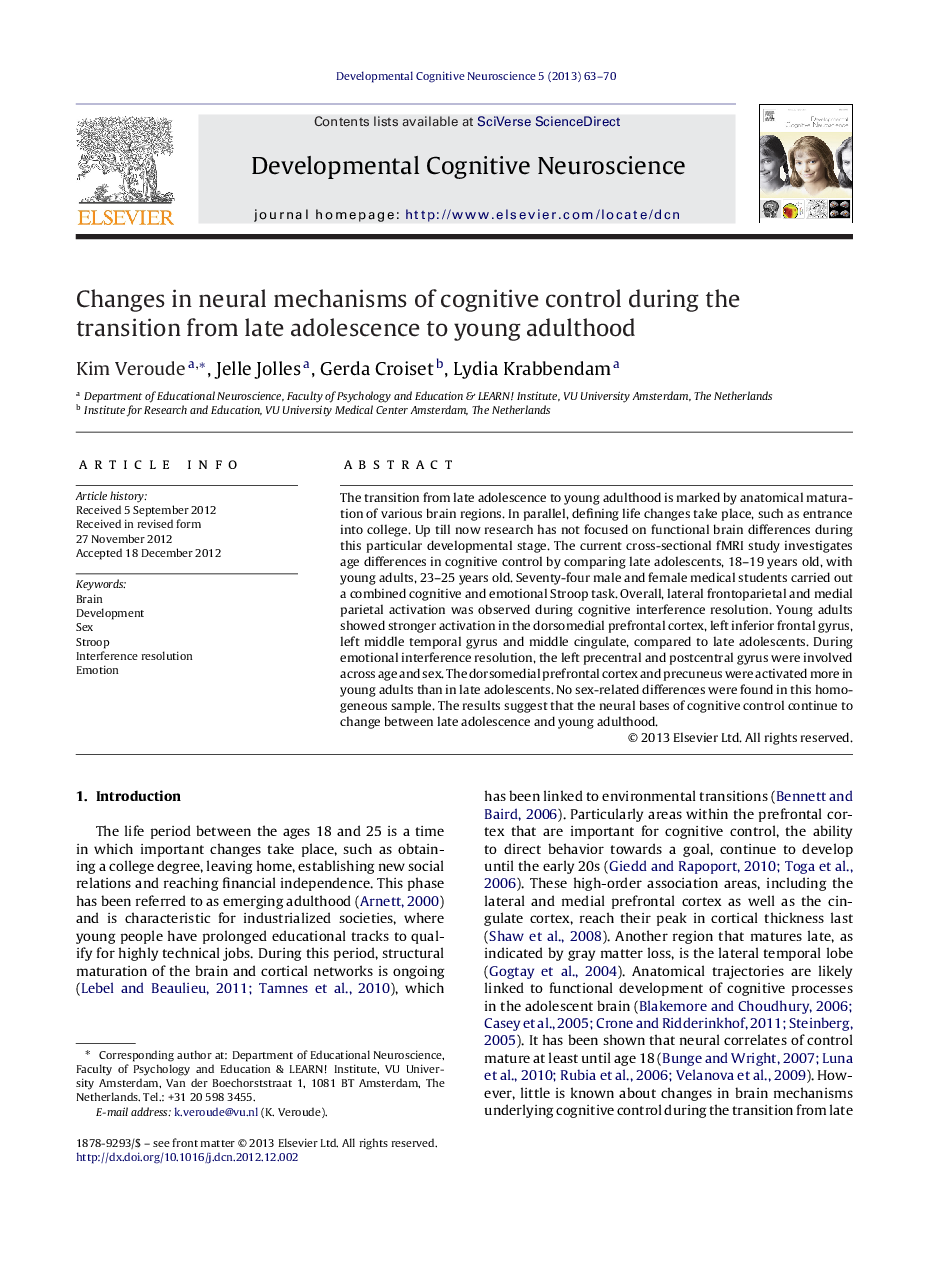| Article ID | Journal | Published Year | Pages | File Type |
|---|---|---|---|---|
| 6260981 | Developmental Cognitive Neuroscience | 2013 | 8 Pages |
The transition from late adolescence to young adulthood is marked by anatomical maturation of various brain regions. In parallel, defining life changes take place, such as entrance into college. Up till now research has not focused on functional brain differences during this particular developmental stage. The current cross-sectional fMRI study investigates age differences in cognitive control by comparing late adolescents, 18-19 years old, with young adults, 23-25 years old. Seventy-four male and female medical students carried out a combined cognitive and emotional Stroop task. Overall, lateral frontoparietal and medial parietal activation was observed during cognitive interference resolution. Young adults showed stronger activation in the dorsomedial prefrontal cortex, left inferior frontal gyrus, left middle temporal gyrus and middle cingulate, compared to late adolescents. During emotional interference resolution, the left precentral and postcentral gyrus were involved across age and sex. The dorsomedial prefrontal cortex and precuneus were activated more in young adults than in late adolescents. No sex-related differences were found in this homogeneous sample. The results suggest that the neural bases of cognitive control continue to change between late adolescence and young adulthood.
⺠This fMRI study focuses on the transition from late adolescence to young adulthood. ⺠Medical students aged 18-19 or 23-25 performed a cognitive-emotional Stroop task. ⺠Age differences but no sex-related differences in brain activation were observed. ⺠Young adults showed more activation in several regions than late adolescents. ⺠Findings indicate continued development of cognitive control during college years.
